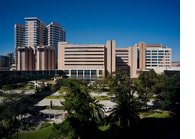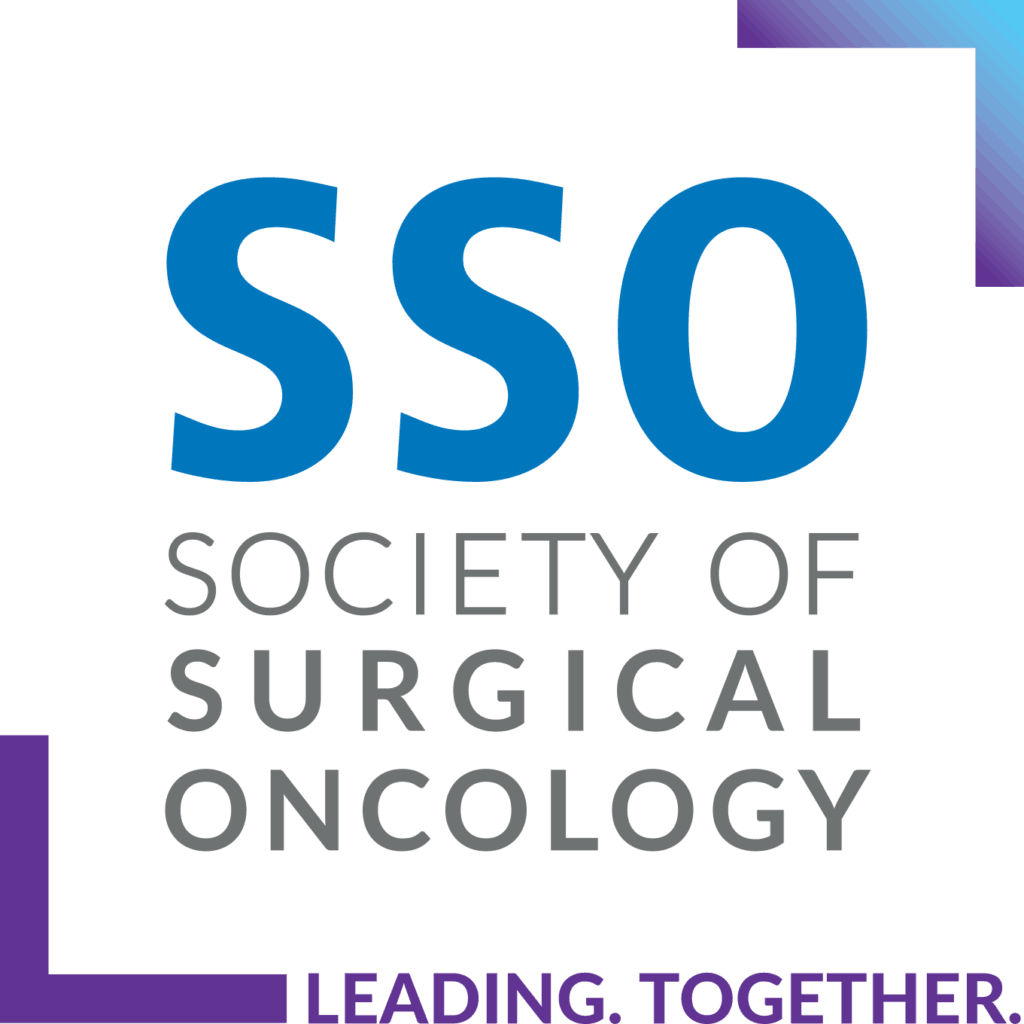Houston, Texas
Program Director: Brian K. Bednarski, MD

Complex General Surgical Oncology Fellowship
The University of Texas MD Anderson Cancer Center is recognized as one of the best cancer training and treatment centers in the world. Its mission is to eliminate cancer in Texas, nationally, and globally through outstanding programs that integrate patient care, research and prevention, and through education for undergraduate and graduate students, trainees, professionals, employees and the public. MD Anderson’s Department of Surgical Oncology offers a fellowship in Complex General Surgical Oncology in which fellows are exposed to a large volume of complex surgical problems and are involved in the initial evaluation of new patients, treatment planning including multidisciplinary approaches, design of the surgical approach, and postoperative and long-term follow-up care. This clinical experience, combined with numerous opportunities for research, provides our graduates with a rich experience that prepares them to enter academic careers, establish successful surgical oncology programs at university centers, and develop productive research and training programs. Graduates will be well poised to take on future leadership roles in surgery. More than 85% of our graduates assume a full-time appointment in academic surgery.
Program Tracks
MD Anderson Cancer Center offers seven new positions annually in our Complex General Surgical Oncology (CGSO) Fellowship program accredited by the ACGME in two tracks. Both tracks are designed to refine surgical skills and clinical judgment involving complex cancer operations as well as those intellectual skills encompassing all aspects of cancer management (including radiation biology, pharmacology, cancer pathology, clinical immunology and tumor biology).
Track 1 – Complex General Surgical Oncology Fellowship
There are six positions annually for the 2-year CGSO fellowship program in Track 1. The program is designed to enable fellows to acquire an advanced body of knowledge and level of skill in the surgical and multidisciplinary management of malignant diseases. Fellows in the basic two-year clinical curriculum spend 17 months on general surgical oncology services (melanoma, sarcoma, breast, endocrine, colorectal, hepatobiliary, pancreas, gastric/HIPEC) and one month each in medical oncology, radiation oncology and pathology. The remaining four months are dedicated to learning research principles such as biostatistics, the design of clinical trials, data collection and management, and protocol writing (including clinical trials conducted during the two-year fellowship). The second-year curriculum allows for specialization of training tailored to match the individual fellow’s goals.
Track 2 – Combined Complex General Surgical Oncology/Research Fellowship
There is one position annually for the Track 2 combined fellowship program. This program includes the 2-year CGSO fellowship with an additional year of laboratory, translational or health services/outcomes research funded by an NIH T32 grant for the training of academic surgical oncologists. This 3-year program allows fellows who have not had a significant research experience as part of their general surgical residency to spend an additional 12 months of training. This program is also especially helpful for fellows who have already had significant basic/translational research experience who desire to spend additional research time to acquire new skills, expertise and preliminary data to excel as an independently funded surgeon-scientist. The choice of a research environment is made by the individual fellow selecting from among the numerous opportunities in either the Department of Surgical Oncology, or in the Basic/Translational Research Programs throughout MD Anderson or in the Department of Health Services Research. The research track has an additional goal of preparing individuals for a productive career in academic surgery by providing a teaching program in such areas as biostatistics, principles of clinical research, molecular biology, genomics, tumor immunology, grantsmanship and the writing of scientific manuscripts. The goal of the combined fellowship is to train individuals who can establish a successful surgical oncology program in a university medical center, develop a productive research and teaching program involving oncology, and compete successfully for research grants.
Fellows in both tracks are expected to conduct research projects that result in at least one finished manuscript ready for publication prior to the completion of their fellowship. These may range from a short-term clinical research project to a more sophisticated clinical investigation or laboratory science project.
Educational Objectives of the Fellowships
- Learn how to manage patients with difficult, rare or complex cancer presentations, including their clinical evaluation, surgical management, and adjuvant therapy wherever appropriate.
- Be able to perform complex and technically challenging operations involved in cancer treatment (e.g. limb perfusion, hyperthermic intraperitoneal chemotherapy (HIPEC), pelvic exenteration, etc.).
- Be able to plan appropriate treatment for these difficult cases based on the knowledge of the natural history of the disease, proper staging, and integration of multi-disciplinary care.
- Train highly skilled academic surgical oncologists who will take their clinical and research training to an academic residency program and translate those skills into teaching surgical residents.
Educational Conference and Courses
Fellows will attend weekly conferences including:
- Mortality and Morbidity Conference
- Basic and Clinical Research Conferences
- Surgical and Institutional Grand Rounds
- Multidisciplinary Planning Conferences (breast, sarcoma, HPB, melanoma, endocrine, colorectal)
Additionally, there is a weekly meeting for the fellows to cover advanced topics in the multidisciplinary and surgical management of patients with malignant disease. All fellows attend annual series of required core oncology lectures that includes research and clinical ethics, biostatistics, the design of clinical trials, cancer immunology and cancer genetics and molecular biology.
Eligibility Criteria
Applicants for the CGSO fellowship must meet the following educational qualifications:
- Successful completion of an ACGME-accredited general surgery residency program in the U.S. or Canada.
- Graduates of medical schools outside the United States and Canada must have a valid certificate from the Educational Commission for Foreign Medical Graduates (ECFMG)
- At the time of entry into the fellowship program all applicants will be Board eligible or board certified general surgeons under the auspices of the American Board of Surgery
Applicants must also have passed each step of the USMLE by the third attempt.
Eligibility for the research fellowship track is the same as for the CGSO fellowship but in addition, applicants must also be US citizens or permanent residents in order to qualify for the NIH research grant funding for this fellowship program.
MD Anderson requires international medical graduates to meet requirements for an institutional permit as outlined by the Texas State Board of Medical Examiners and have the necessary documents for a J-1 visa.
How to Apply
Applications for fellowship positions will be made through ERAS https://www.aamc.org/students/medstudents/eras/fellowship_applicants/.
Following the application deadline completed applications will be reviewed and candidates selected for interviews will be notified. In addition to the application, the following documents should also be included:
- A current curriculum vitae
- Personal statement
- Three letters of recommendation
- Medical school transcripts
- USMLE scores
- Recent photograph
MD Anderson Cancer Center will participate in the national match program for Complex General Surgical Oncology administered by the NRMP. http://www.nrmp.org/.
Contact Us
For Inquires and questions about our program, please contact:
Brian K. Bednarski, MD
Program Director
Department of Surgical Oncology, Unit #1484
P. O. Box 301402
Phone: 713-745-9799
email: BKBednarski@mdanderson.org
Or
Brigitte Taylor
Manager of Surgery Education Programs
Department of Surgical Oncology, Unit 1484
P.O. Box 301402
Houston, TX 77230-1402
Phone: 713-794-1552
Fax: 713-745-1921
email: bmtaylor@mdanderson.org
For inquiries about the Track 2 research year, please contact:
Funda Meric-Bernstam, M.D.
T-32 Research Fellowship Director
Professor and Chairman
Department of Investigational Cancer Therapeutics
1400 Holcombe Blvd., Unit 455
Houston, TX 77030
Phone: 713-794-1226
email: fmeric@mdanderson.org






